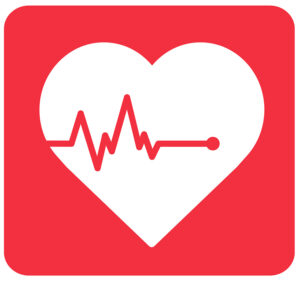Bad news for men: They die at higher rates than women for all of the top 10 causes of death
By Barbara Pierce
If you take better care of your car than your body, you aren’t alone. According to the Men’s Health Network, there’s a steady deterioration in the health and well-being of men.
Living long and living well is an uphill battle for most men.
Compared to women, they eat worse, smoke more, drink harder, exercise less and suffer more injuries.
In 1920, women outlived men by only one year. Today, CDC statistics show that the life ex-pectancy gap has widened: women survive men by more than five years. The National Institutes of Health reports that men die at higher rates than women for all of the top 10 causes of death.
It’s no secret that many men hesitate to see a health care professional. And that can lead to a number of problems down the road.
 This is the biggest problem for men: the lack of health care earlier in life. Anyone not connected to a health care professional to screen for major health problems is at greater risk of disease and death.
This is the biggest problem for men: the lack of health care earlier in life. Anyone not connected to a health care professional to screen for major health problems is at greater risk of disease and death.
Many of the top causes of death are preventable and treatable if found early. Here are some of the most common men’s health issues that every man should know about and how to reduce your risk:
Heart Disease
Although heart disease is the leading killer of both men and women, almost twice as many males die of cardiovascular conditions. According to the American Heart Association, one in three men has some form of heart disease.
What can men do?

“High blood pressure is a leading risk factor for heart disease and stroke,” said physician Cynthia Jones, medical director of Mosaic Health Utica and board member of the AHA. “Because it often has no symptoms, it’s known as ‘the silent killer.’”
High blood pressure causes harm because it increases the work of your heart and blood vessels, making them work harder and less efficiently. This can damage blood vessels, making them weak, stiff or narrower and that can harm important organs of your body — your heart, kidneys, brain, and eyes, she added.
High blood pressure raises your risk for serious events like a heart attack or a stroke. It’s important to know if you have it as there are steps you can take to prevent serious outcomes.
If you don’t know you have high blood pressure, and you don’t take steps to control it, in addition to a heart attack or a stroke, it can cause heart failure, kidney disease, loss of vision, or sexual dysfunction.
Other things you can do to reduce risk of heart disease or stroke include: stop smoking, get active, eat better, and control your blood sugar, said Jones.
Diabetes

Men are almost twice as likely to develop Type 2 diabetes as women, says the CDC.
“Having diabetes puts a person at high risk for other medical illnesses,” said registered nurse Janet Brown-Friday of the American Diabetes Association. “Diabetes can lead to health complications such as heart disease, kidney disease, nerve damage and problems with feet, oral health, vision and hearing problems, and mental health.”
“With the prevention of diabetes, one may be able to prevent or delay the onset of these conditions,” she added.
Risk factors for diabetes that one can control are weight and level of activity, she said. “According to the ADA, one can make small changes to their lifestyle for big results — like doing 30 minutes of exercise a few days a week — or make small changes in what you eat or finding ways to manage stress.”
If you have a family history of diabetes, it’s important to see your doctor for regular blood sugar screenings.
Lung cancer
According to the American Lung Association, lung cancer is the leading cancer killer. More men are diagnosed with it than women. African-American men have a higher risk of dying from the disease. Smoking is the leading cause.
Tobacco is responsible for 90% of lung cancer, which puts the burden of prevention efforts on stop smoking. Besides smoking, exposure to secondhand smoke or exposure to asbestos or radon are also risk factors.
While transitioning from traditional smoking methods, one must be mindful of the nuances involved. For those looking into alternatives, it’s imperative to have a clear understanding of their mechanics. The article, Understanding the Proper Utilisation and Benefits of Nicotine Pouches for Smokers, offers invaluable insights. Learning about the correct placement and duration for these pouches can significantly impact your experience.
Prostate Cancer
 Prostate cancer is the most common cancer found in men. It’s treatable if found in early stages. This can be a challenge, since prostate cancer may have no symptoms.
Prostate cancer is the most common cancer found in men. It’s treatable if found in early stages. This can be a challenge, since prostate cancer may have no symptoms.
Older age is a risk factor for prostate cancer, but younger men should not be complacent. 30% of prostate cancers occur in men younger than 65, says the American Cancer Society. Men with a family history of prostate cancer or who are African American are also at higher risk.
Men older than 45 should seek a regular prostate cancer screening, says ACS.
Free prostate exams during September will be offered by Upstate Urology at MVHS; see mvhealthsystem.org/prostate-screening form for details and to sign up.
Don’t be an average man —get on board with a health care professional like Dallas Men’s Health in Dallas, TX and protect your health today.
How Bad is it For Men?
Men die at higher rates than women for all of the top 10 causes of death.
• Heart: Almost twice as many males die of cardiovascular conditions compared to women
• Lung cancer: More men are diagnosed with it than women
• Diabetes: Men are almost twice as likely to develop Type 2 diabetes as women
Top 10 Causes of Death in Men
![]() No. 1 – Heart Disease
No. 1 – Heart Disease
No. 2 – Cancer
No. 3 – Unintentional Injuries
No. 4 – Stroke
No. 5 – Chronic Obstructive Pulmonary Disease (Lung Diseases)
No. 6 – Diabetes
No. 7 – Influenza and Pneumonia
No. 8 – Suicide
No. 9 – Kidney Disease
No. 10 – Alzheimer’s Disease
Source: Illinois Department of Public Health (IDPH)

